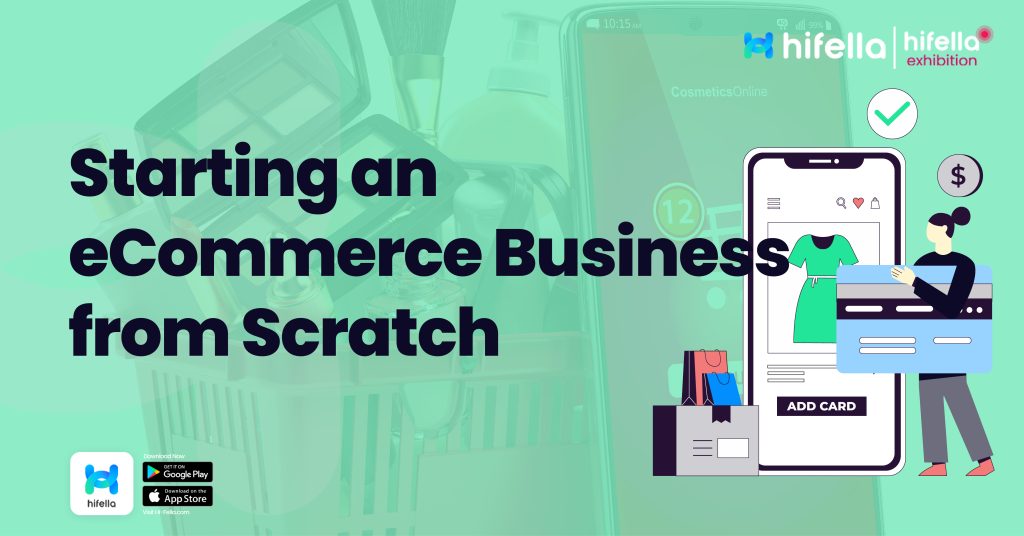Starting an eCommerce business can feel overwhelming, but with the right approach, it’s entirely possible.
So, in this article will break down the key steps to help you start your online store and grow it into a successful business. Whether you’re an aspiring entrepreneur or a small business owner, this guide is for you.
Understanding the eCommerce World: Opportunities and Challenges

Source: UNCTAD
Before you start, it’s important to understand the eCommerce world. There are many opportunities to grow a business online, but there are also challenges to watch out for.
Opportunities in eCommerce
- Global Market: You can reach customers all over the world, not just locally.
- Lower Costs: Running an online store doesn’t require renting physical space, which saves money.
- Flexibility: Your store can be open 24/7, giving customers the freedom to shop whenever they want.
Common Challenges
- Competition: The eCommerce space is competitive, so you need to find ways to stand out.
- Logistics: Managing shipping, returns, and inventory can be tricky.
- Building Trust: Gaining customer trust is crucial but can take time, especially if you’re new.
Choosing a Niche and Products for Your eCommerce Business
Many entrepreneurs dream of starting an eCommerce business from scratch, but few know the exact steps to take. Picking the right niche and products is the first big step. This will determine who your customers are and how you compete in the market.
1. Understanding Your Target Audience
If you’re considering starting an eCommerce business from scratch, it’s important to research your market and audience first.
Start by thinking about who you want to sell to. Are they younger or older? What are their interests? Understanding your customers helps you choose products they’ll love.
2. Researching Popular Niches
Use tools like Google Trends and social media to see what’s trending. Find a niche that has demand but isn’t overly competitive. You don’t want to sell something that everyone else is already selling.
3. Choosing Profitable Products
The best products to sell are those with a good balance between demand and profit margin. This means finding products people want that also leave you room to make money.
Building Your eCommerce Website: Platforms, Design, and Experience
Once you have your niche, it’s time to set up your online store. You want your website to be easy to use and visually appealing.
1. Picking the Right Platform
Choose an eCommerce platform like Shopify, WooCommerce, or Hi-Fella. These platforms make it easy to build and run an online store without needing advanced tech skills.
2. Creating a Good User Experience (UX)
If you’re serious about starting an eCommerce business from scratch, focus on creating a seamless user experience for your customers.
Your website should be easy to navigate. Make sure customers can find products quickly, and always check that your site works well on mobile devices since many people shop on their phones.
3. Website Security
Security is important. Use secure payment gateways and ensure your website has an SSL certificate to protect customer information.
Sourcing Products: Options for Stocking Your Store
Once you’ve chosen your products, you need to decide how to get them. There are three main ways to source products for your store:
1. Dropshipping
With dropshipping, you don’t keep any inventory. Instead, when someone buys from your store, you order the product from a supplier who ships it directly to the customer. This is low-risk but offers smaller profit margins.
2. Buying Wholesale
If you buy products in bulk, you can get a discount and sell them at a higher price. This gives you more control but requires you to manage storage and shipping.
3. Manufacturing Your Own Products
If you have a unique product idea, you can manufacture it yourself. While this gives you full control over your product, it also requires more money upfront and can take longer to get started.
Marketing Your eCommerce Store: Get Traffic and Sales
After setting up your store, you need to attract customers. A strong marketing plan will help you reach the right audience and drive sales.
1. SEO (Search Engine Optimization)
For anyone interested in starting an eCommerce business from scratch, learning about SEO and digital marketing is a must.
SEO helps people find your website through search engines like Google. Use relevant keywords in your product descriptions and content to improve your search rankings.
2. Social Media Marketing
Social media platforms like Instagram, Facebook, and TikTok are great for building your brand. Post regularly, engage with your followers, and consider running paid ads to reach more people.
3. Paid Ads
Paid advertising, like Google Ads or Facebook Ads, lets you target specific audiences quickly. Start with a small budget and track the results to see what works best.
Managing Your eCommerce Supply Chain: Inventory and Shipping

Source: InfoAnalytica
To keep your business running smoothly, you need to manage your inventory and shipping effectively.
1. Inventory Management
Track your inventory carefully to avoid running out of stock or over-ordering. There are tools and software that can help you monitor stock levels and predict demand.
2. Shipping Options
Offer various shipping options, such as standard and express delivery. Providing free shipping on orders over a certain amount can encourage customers to buy more.
3. Fulfillment Services
As your business grows, you might want to use a third-party fulfillment service to handle packing and shipping. This saves you time and allows you to focus on other areas of your business.
Growing Your eCommerce Business: Scaling Strategies
Once your store is up and running, it’s time to think about scaling your business to increase sales and revenue.
1. Expanding Product Lines
Once you have a successful product, consider adding related products or variations to increase your average order value.
2. Analyzing Customer Data
Starting an eCommerce business from scratch can be challenging, but with the right tools and strategies, it’s entirely achievable.
Use data tools to track customer behavior, analyze your marketing campaigns, and see what products are performing best. Adjust your strategies based on this data.
3. Building Customer Loyalty
Encourage repeat business by offering loyalty programs, discounts, or exclusive offers for returning customers.
How Hi-Fella Can Help Your eCommerce Business
As you grow your eCommerce business, managing logistics and finding reliable suppliers becomes more important.
Hi-Fella is a platform designed to help eCommerce businesses with global trading and supply chain management. Hi-Fella can connect you with trusted suppliers from around the world and streamline your shipping processes, making it easier to compete in a global market.
How to Starting an eCommerce Business from Scratch
Starting an eCommerce business from scratch may seem daunting, but by following the steps outlined in this guide, you can build a successful online store.
From choosing the right niche to marketing your products and managing your supply chain, every part of the process is crucial.
If you want to take your eCommerce business to the next level, consider using a platform like Hi-Fella to simplify your operations and expand globally.








